7. Week End (Jean-Luc Godard)
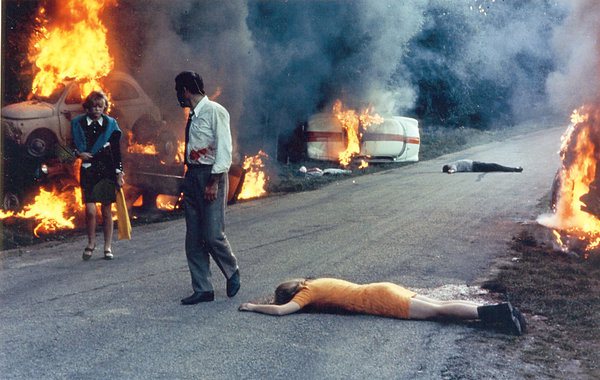
Deeply critical of the bourgeois, ‘Week End’ is arguably JLG’s most groundbreaking film – a big claim to make considering his status as one of the greatest directors of the French New Wave, with more than a hundred titles credited.
One particular shot from the film was widely regarded as revolutionary. The scene is of a traffic jam. The camera captures the action from the roadside, slowly progressing right toward the cause of the back up. We see vehicles upturned, vehicles facing the opposite direction, industrial vehicles, a petrol truck displaying the Shell logo, and families playing ball games from one sunroof to the next. After this there are cars catching fire, and bodies that have been ran over, bleeding in the middle of the road.
This and the footage either side of it, serves as an ; an uncompromising commentary about class, capitalism, and contemporary society.
8. The Act of Killing (Joshua Oppenheimer)
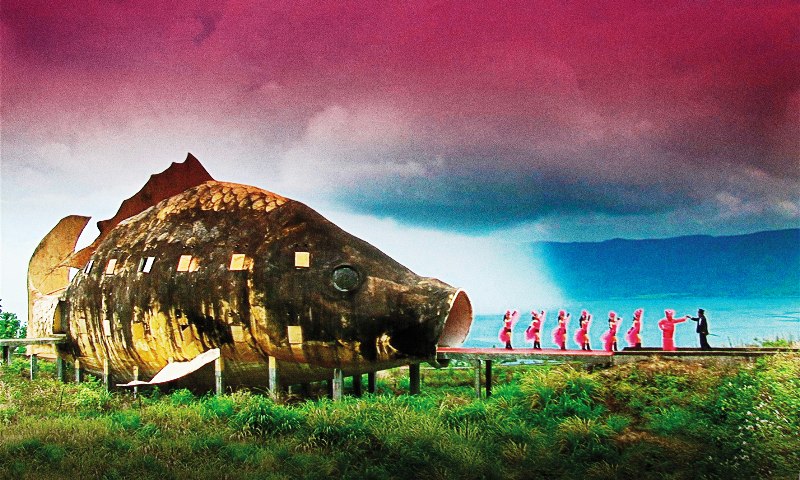
In the age of Netflix and a wealth of other television on demand services, the documentary as an artform is as popular as ever. Usually when the content of a documentary is shocking, it will gain some online notoriety. What makes ‘The Act of Killing’ shocking is both the content, and the form in which the documentary plays out.
The film is about the Indonesian mass killing of communists. The film is even more horrific as the death squad leaders retell their killings through dramatisation. The sincerity of their actions on film is brutal, and the implications of their appearance in the film is unlike any other doc you will ever see.
9. The Machinist (Brad Anderson)
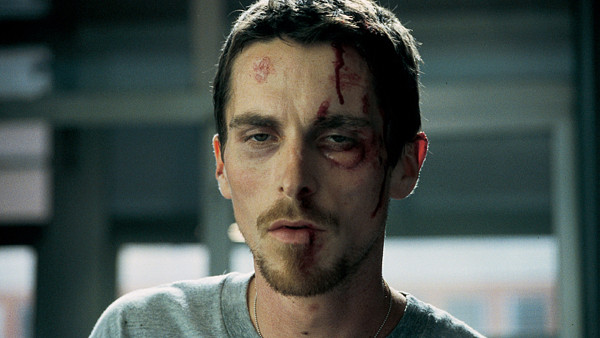
Christian Bale, who noticeably loses weight for the role, is Trevor Reznik. Not the only film on this list to take influence from Dostoyevsky, Reznik’s insomnia causes us to question his displacement in the film.
After he gets fired the story descends and asks the audience to question the reliability of its narrator. In a similar way to ‘Memento’, we have to work hard to piece together the narrative from the information we do know.
The film is visually dark, again reminiscent of late ’90’s cinema (‘Fight Club’, ‘The Matrix’ et al). The characters are pushed away from Reznik, and by extension us the audience, as his paranoia-filled confused state is ever-heightened by his continued lack of sleep.
10. Falling Down (Joel Schumacher)
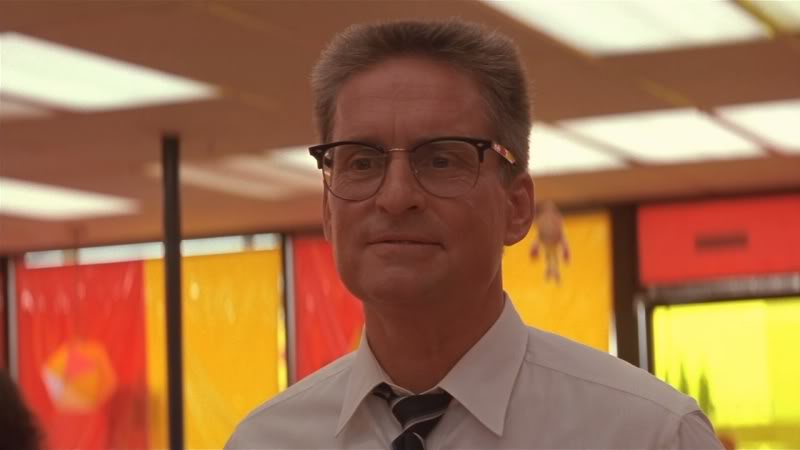
D-Fens (Michael Douglas) is having a bad day. ‘Falling Down’ is well-known for its fast food restaurant breakfast/lunch scene (we all know that the in-store photo of a burger is never going to match the actual burger in the bun), but its problem with society doesn’t stop at convenience foods. Watch Douglas pull apart all corners of mundane life, only with the confidence of a wet lettuce.
In one scene a kid mistakes him for stunt man, asking “where are all the cameras?” – the film deems his actions unacceptable in realism, instead offering us a message about film making. The central character lacks a moral perspective, so it is left up to the audience to make judgement calls all of the time. The pressurised environments impact all of this, the stress levels constantly ticking over.
11. Boyhood (Richard Linklater)
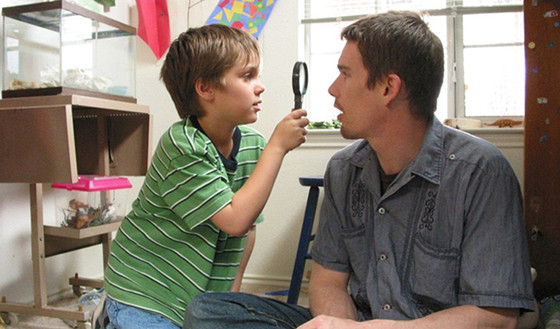
The latest offering from Linklater, known for his different approach in narrative cinema. ‘Boyhood’ was always an ambitious project; shot over a period of twelve years, we follow Mason (Ellar Coltrane) through childhood and adolescence. There are terrific performances from Patricia Arquette (who took the Best Supporting Actress Oscar for her role in the film) and long-time Linklater collaborator Ethan Hawke.
The film isn’t solely focused on the lead growing up, but it is also about motherhood, and the male attitudes toward parenting.
Whilst moving from one year to another, the music in the film’s soundtrack is used as a marker – each song reflecting the year we are experiencing. The nearly three hour duration is too much for some, but it takes on different dynamics as the narrative progresses. You’ll certainly find no other coming of age story like this one.
12. Shaun of the Dead (Edgar Wright)
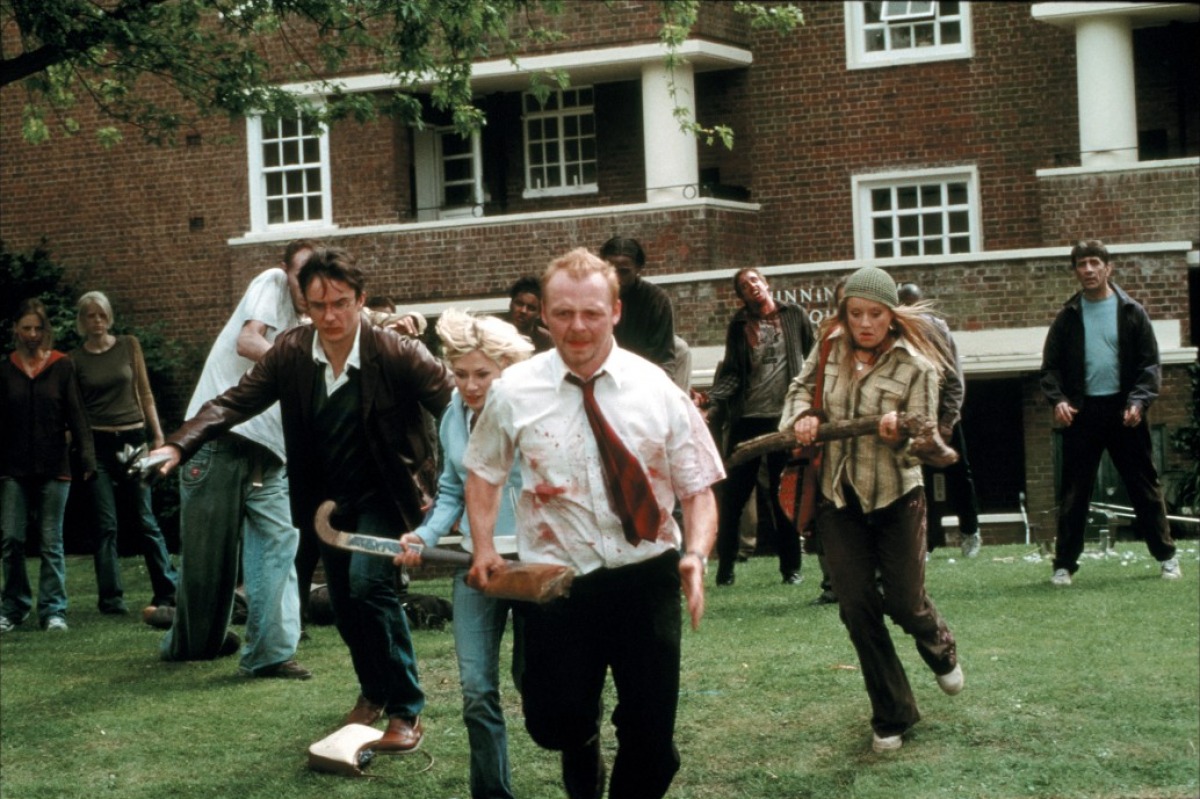
The first in the so-called “Cornetto trilogy” (preceding ‘Hot Fuzz’ and ‘The World’s End’) with Simon Pegg and Nick Frost in lead roles. This brings about a hybrid genre combining horror and romantic comedy, playfully sketching out the tropes of each to form a cohesive yet inventive narrative.
Just moments away from the (classic slow-moving) zombie infestation Ed (Simon Pegg) gets trapped in his garden and has only a box of vinyl records to attack with – he has to decide which records are worth destroying for survival. The albums that get ditched include Dire Straits and Sade. This is a fresh take on the British horror genre, finding moments of hilarity in the tropes of an everyday survival narrative.
13. Brick (Rian Johnson)
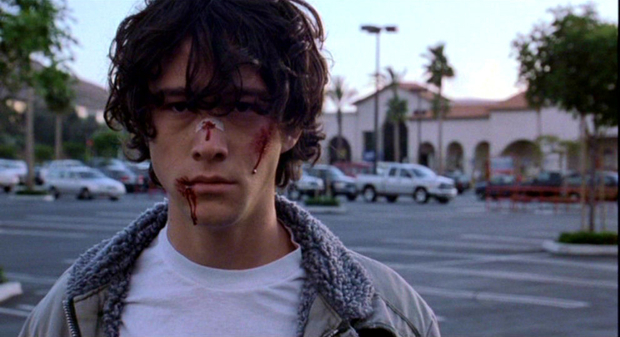
More genre blending now with the fantastic ‘Brick’. Sometimes music gets described as “dancefloor, not dancefloor” (and a number of other similar sentiments from genre to genre). It is appropriate then for this to be described as “noir, not noir”, or ‘neo noir’ perhaps. All of the elements of a film noir are present – the wide angles, the detective story line, the femme fatale.
Brendan (Joseph Gordon-Levitt) is tasked with decoding notes, and broken speech, following the mysterious disappearance of his ex-girlfriend Emily. The film at first appears to be a high-school drama, but its mystery is apparent very early on, and the two mash together to create something new.